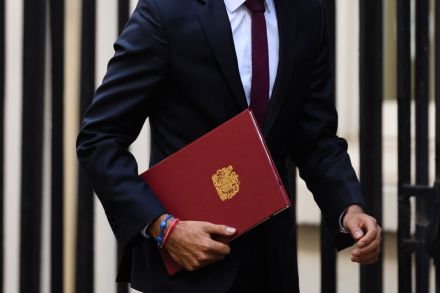Why is Rishi Sunak going back on a manifesto pledge?
20 min listen
Pandemic finances are different to normal finances, as seen by today’s new figures from the OBR which show that the UK’s economy will not be back to pre-pandemic levels until 2022. In today’s spending review, the Chancellor broke a manifesto pledge by cutting the overseas aid budget. Is this a taste of things to come? Katy Balls speaks to Kate Andrews and James Forsyth.





















